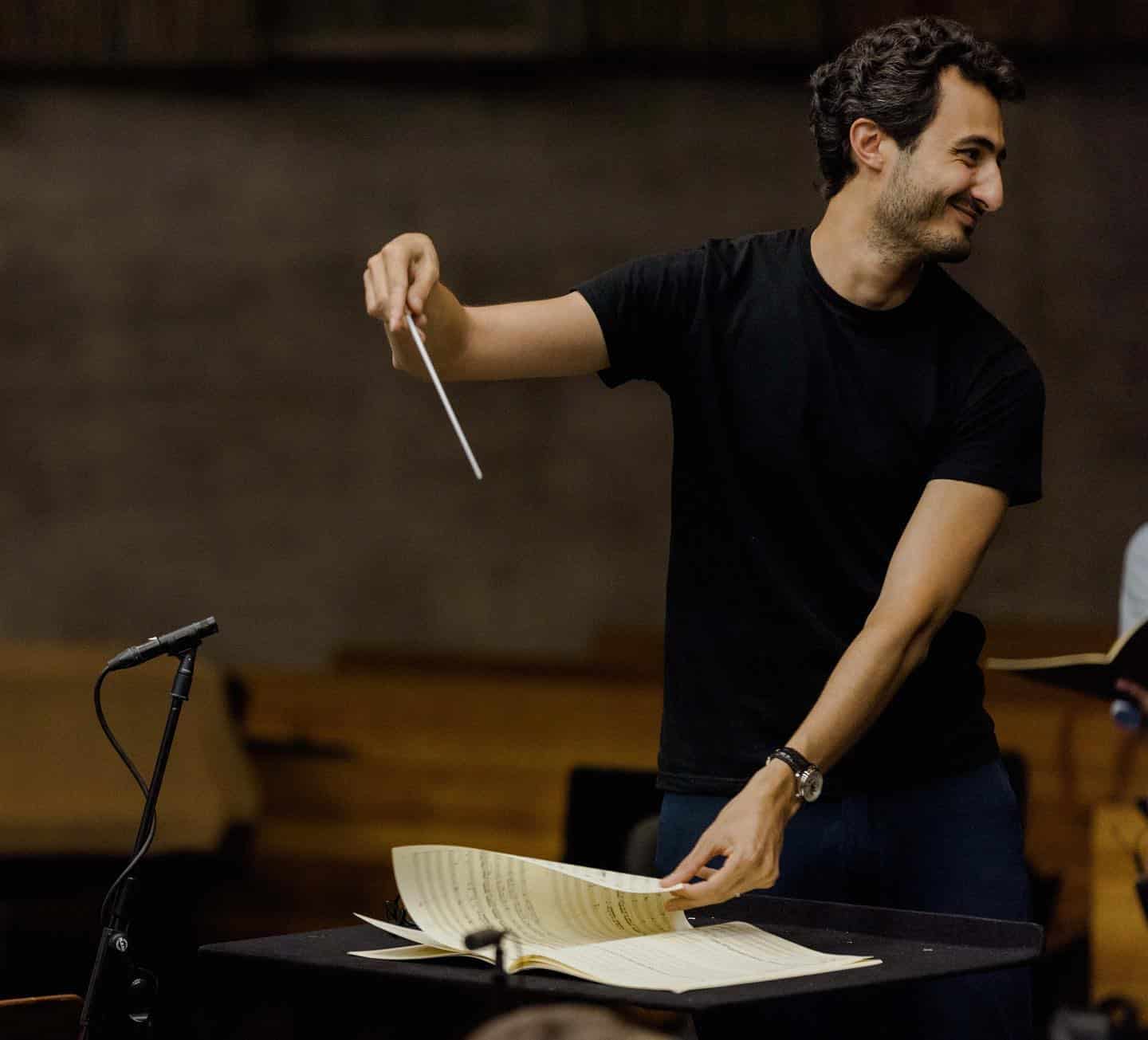First person: Philip Roth loved a string quartet
mainAn exclusive reminiscence by Philip Setzer of the Emerson Quartet:

“Hello, Philip?” I asked.
“Yes.”
“Hi, this is Otherphilip”
“Otherphilip—how are you?” he asked.
“Fine, and you?”
“I’m still here.”
“Well, that’s a good thing.”
“I suppose”.
This is how my phone conversations with Philip Roth would begin. Then we would talk a bit about getting older, what my quartet was up to, what we had both been reading lately (I was usually embarrassed to admit that I had been reading a mystery novel, whereas he had just finished some huge book about history). Then I would invite him to an upcoming concert of ours and he would have to check and get back to me, which he would do promptly, and often accept.
For years we actually hadn’t met in person until my wife, Linda, mentioned at the intermission of one of our concerts that she was sitting behind Philip Roth. I suggested she introduce herself and invite him to come with her to meet us afterwards. He seemed really pleased, didn’t want to bother us, but did indeed accompany her backstage to find us. The meeting was warm and friendly. He was most gracious and complimentary. I only saw him a few times over the years, the longest visit being at a birthday dinner reception for Yefim Bronfman following his recital at Carnegie Hall. One big regret is that we couldn’t attend the 80th birthday celebration for Philip Roth. We were thrilled to be invited, but, unfortunately, we were on tour at the time.
One of the greatest rewards of playing in the Emerson String Quartet for over 40 years is the fact that we meet and befriend so many people. When someone of Roth’s stature tells us that he has attended many of our concerts, we feel honored. When he tells us how much our music making has meant to him on a personal level, we feel something even
more. We feel validated. We have lost one of the greatest authors of our time, of any time. The Emerson Quartet has lost a special fan and friend.
–Otherphilip Setzer






If Philip Roth admired the Emerson Quartet, he had excellent taste in Classical music.
Totally agree. The Emersons are some of the smartest guys and musicians I ever came across!
“We are standing outside Carnegie Hall, during intermission, on a beautiful spring evening. The Emerson String Quartet has just performed, first excerpts from Bach’s The Art of Fugue and then Shostakovich’s String Quartet no. 15. Roth, who rarely misses an Emerson concert, has invited several friends to join him, and other friends who happen to be in the audience have been coming by to say hello. These include an elegant older woman with red hair, still extremely attractive, who goes far back in his life—her name is Maxine Groffsky and she was the inspiration for Brenda Patimkin. (Roth recalls that the hair was once incredibly beautiful, “the color of an Irish setter,” and he thinks that she may have been flirting with him tonight: “Maybe we’ll have an affair every fifty-one years.”) Bowled over by the gorgeously death-haunted Shostakovich, he admits that he has never really liked The Art of Fugue. “Too obsessive-compulsive,” he says. And then, directly to Bach: “You’ve figured it out already! You can stop!” To us, he elaborates on his agitation: “He’s like a guy constantly checking his pockets, or worrying that he left the pilot light on!” Who had any idea that Bach could be so funny?
The second half of the program is Beethoven’s String Quartet in B-flat Major, op. 130, played with its original ending, the Grosse Fuge, the most formidable fugue in Western music: wild, dense, dissonant, intensely dramatic, even argumentative, running the emotional gamut. The performance is electric, and coming out of the theater, Roth says that now he understands why we listened to the Bach: “the Beethoven is like Bach on drugs!” We are all more than a little punchy as we head off into the city streets, and soon we are laughing so hard that we can hardly walk, as Roth—master of literary countervoices, I can’t help but think—continues to expand on the fugue: “How crazy all those voices are! Like four lunatics in an asylum! Four madmen screaming away all on their own and then…they turn out to be together!” He tells one of our company, a psychiatrist, that under non-musical circumstances she would have to give each of them a shot. “Four guys who all think they are God!”
People peel off in various directions, and then, standing on Eighth Avenue, he is hailing a taxi, arm raised high. It’s a bit of a wait, and now strangers passing by are saying hello. A gray-haired man crossing the avenue launches in. “Hi, I’ve loved everything you’ve done for the last fifty years,” he says, and quickly adds, “I’m older than I look.” Roth, who has been quietly humming to himself, emerges from his thoughts in time to respond, “I’m older than I look, too.” Another man crossing the street simply reaches up to Roth’s outraised hand, grabs it, and says, “Bravo, Maestro!” (This is still the Carnegie crowd, musically minded.) This happens too quickly for Roth to respond, or to fully relinquish the music going through his head. He doesn’t seem pleased or displeased; he hardly seems to have noticed. And now I can distinctly make out the melody issuing from him, the crazy, crossing voices, as he stands in the New York night, traffic flashing by, humming the Grosse Fuge.”
(Claudia Roth Pierpont, “Roth Unbound”)
Superb characterizations of Bach and the Grosse Fuge. He would have been a formidable music critic.
It was clear to me that he was a truly fine listener of classical music when I read in Human Stain his highly eloquent description of Fima Bronfman playing Rachmaninoff in Tanglewood (“a force of nature”) and later in the same novel his brilliant and verbally precise description of the last movement of Mahler’s Third.
I once met Fima and was happy to learn that they became close friends. „He is by far the most intelligent man I ever met“, Fima said.
From writing Portnoy’s Complaint to enjoying the Emerson String Quartet – Philip Roth was for sure a very well rounded fellow.
Oh, you make me laugh. Cry me a liver…
While I’m a fan of large orchestral works that have lots of winds and percussion, I think chamber music is the corner stone of classical music, in general. It doesn’t have to be the Emerson for me (but it doesn’t hurt). I can derive pleasure from hearing good local quartets, trios, duos, etc. I also greatly enjoy woodwind quintets.
Even though I’m a brass player, I’m not a big fan of brass quintets. For me, I like brass when there are at least 9 or 10 pieces – the harmonies are richer and the voice leading can be more choir like.